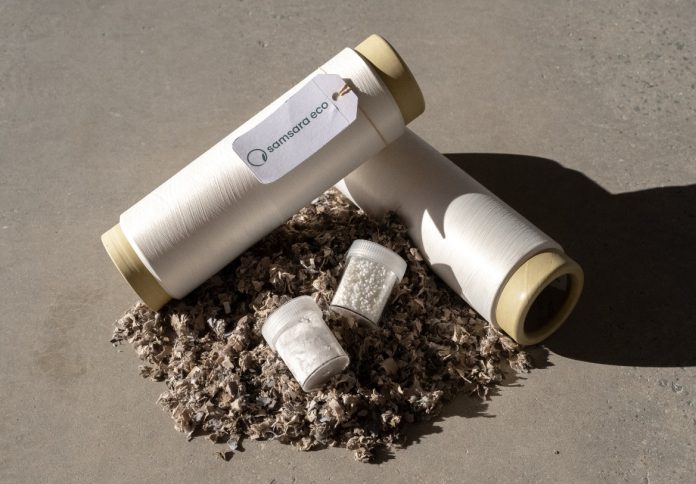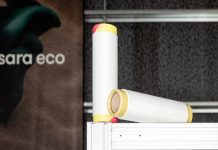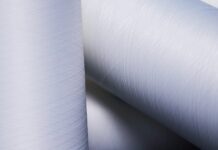
lululemon has signed a 10-year deal with Australian firm Samsara Eco to source recycled nylon and polyester, advancing its efforts to scale circular material solutions across its apparel range.
The partnership could enable Samsara Eco’s enzymatically recycled fibres to support up to 20 per cent of lululemon’s total fibre portfolio, aligning with the brand’s goal to increase the use of preferred materials in its products by 2030.
Preferred materials are those considered lower impact or more sustainable alternatives to conventional options, Samsara Eco said in a news release.
“This long-term collaboration is a powerful example of what’s possible when innovation meets collaboration,” said Ted Dagnese, Chief Supply Chain Officer at lululemon.
“As we work toward our 2030 impact goals, we’re taking a diversified approach—investing in multiple partnerships to advance solutions and help reduce our reliance on fossil-fuel derived resources.”
The move builds on an ongoing relationship between the two companies. In 2024, they jointly introduced the world’s first product made from enzymatically recycled nylon 6,6, along with a limited-edition Packable Anorak made from enzymatically recycled polyester.
The products were designed to maintain the look, feel, and high-performance standards expected by lululemon customers.
Paul Riley, Founder and CEO of Samsara Eco, said the new agreement further validates the viability of circular material technologies.
“Our expanded partnership with lululemon represents a strong step forward to help create a fully circular ecosystem and further highlights the industry’s commitment to transition to more circular materials,” Riley said. “The technology to make circular materials is not a pipe dream – it is here, ready for adoption by forward-thinking companies.”
Samsara Eco has developed a proprietary enzymatic recycling process that breaks down plastics such as polyester and nylon into their base building blocks.
These can then be reused in new products without compromising quality or performance. Polyester and nylon together account for around 60 per cent of global fibre production, and finding viable ways to recycle them is seen as a critical step in reducing textile waste and dependence on virgin fossil-based materials.
To support the scale-up of this technology, Samsara Eco is preparing to open a new commercial facility in Jerrabomberra, New South Wales.
The site will expand production capabilities and advance the company’s enzyme technology platform, EosEco. A second international commercial facility is planned to open in 2028.
Riley expressed confidence in the path ahead: “I’m incredibly optimistic about how we will help fuel circular apparel over the next decade with lululemon.”


















